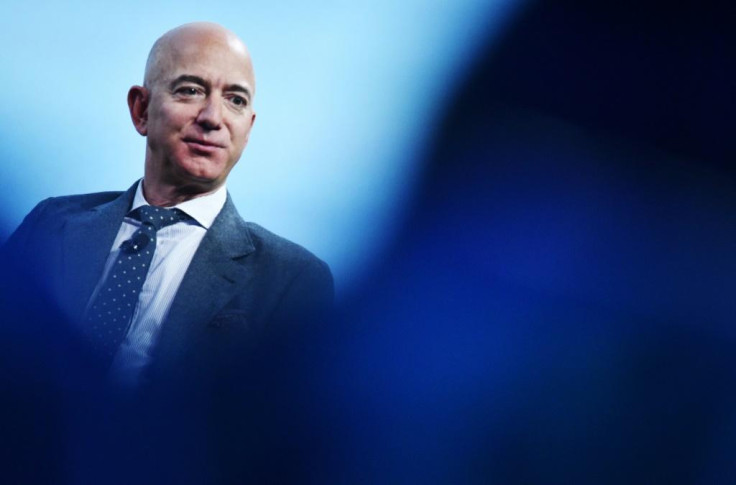Is 'big business' in the US left-wing?
ESG has long been more than a buzzword. It has become a slogan used by activists, but also fund managers and corporate leaders to push through certain ideas of "sustainability," "diversity," etc.

Salesforce founder Marc Benioff, whose fortune is estimated by Forbes at $7.6 billion, wrote in The New York Times: "Yet, as a capitalist, I believe it's time to say out loud what we all know to be true: Capitalism, as we know it, is dead ... capitalism as it has been practised in recent decades – with its obsession on maximising profits for shareholders – has also led to horrifying inequality." Ray Dalio, one of the richest hedge fund managers in the U.S. with a net worth of about $19 billion, wrote that capitalism is broken, that "it must be reformed to provide many more equal opportunities and to be more productive."
For years now, the media has been quick to cite anti-capitalist statements from hedge fund manager George Soros and other rich Americans who demand to be charged higher taxes. But aren't these exceptions? Probably yes, because the public pressure against pro-capitalist and in support of leftist positions is so strong that even billionaires are affected by it – and often prefer to remain silent. While the voices of critics of capitalism such as Benioff, Soros and Tom Steyer can be heard loudly, supporters of capitalism rarely speak out in public.
The American political scientists, Benjamin Page and Martin Gilens speak in their book 'Democracy in America?' of the "public silence of most billionaires." David Koch, who provides financial support for libertarian viewpoints, made just one public comment on tax policy in a 10-year period; his brother Charles Koch made no public comments at all on these issues. "The public silence of most billionaires," report Page and Gilens, "contrasts markedly with the willingness of a small, unusual group of billionaires – including Michael Bloomberg, Warren Buffett, and Bill Gates – to speak out about specific public policies ... All three have favoured a substantial social safety net, progressive taxes, and moderate regulation of the economy. An ordinary American who tried to judge what U.S. billionaires think and do about politics by listening to Bloomberg, Buffett, or Gates would be badly misled."
Until now, I have considered statements such as those from Benioff or Dalio cited above, or even from the powerful Blackrock founder Larry Fink, to be outsider positions. But the highly readable book The Dictatorship of Woke Capital. How Political Correctness Captured Big Business by Stephen R. Soukup got me thinking. "Activists" in the U.S. are no longer limited to shouting down free speech at universities (Cancel Culture) but have long since entered the financial sector. Political activism at corporate general meetings, Soukup shows in his book, almost always comes from the left – the number of those who actively oppose it can be counted on one hand.
And the politicisation of business is becoming a bigger and bigger problem. Even someone like Warren Buffett, who himself is moderately left-wing, already warned about the politicisation of business and the financial industry as long ago as 2019. "It was wrong," he said during an interview with The Times, "for companies to impose their views of 'doing good' on society. What made them think they knew better?" He added: "This is the shareholders' money. Many corporate managers deplore government allocation of the taxpayer's dollar but embrace enthusiastically their own allocation of the shareholder's dollar."
ESG, short for Environmental, Social and Governance, has long been more than a buzzword. It has become a slogan used by activists, but also fund managers and corporate leaders to push through certain ideas of "sustainability," "diversity," etc. The catchphrases are coined by left-wing ideologues who smell "racism" or "sexism" everywhere, and many companies have now capitulated.
Presumably, the managers first adapted outwardly, and then the inward adaptation followed – in psychology this is called "cognitive dissonance": people experience psychological stress when what they say does not align with what they think. First, they adopt leftist slogans out of opportunism and convenience, and finally, they adopt the inner attitude to the outer one.
Last year I was in Miami at a Students for Liberty conference. The CEO, Wolff von Laer, interviewed Whole Foods founder John Mackey, one of the smartest and bravest entrepreneurs in the U.S. Von Laer praised Mackey for his clear public commitment to capitalism – he has even written a book defending capitalism. However, Mackey explained that his political statements had led to massive calls for boycotts and had exposed his company to serious danger at the time. He would not do it again, he said.
like Black Lives Matter (not infrequently from their shareholders' money!), do not have these problems to the same extent. Many managers and entrepreneurs hope to "buy their way out of" or be spared from left-wing "activist" campaigns by donating millions to left-wing organisations, publicly criticising capitalism or speaking out in favour of higher taxes on the rich.

Rainer Zitelmann is a historian, sociologist and multiple bestselling author, whose books include “In Defence of Capitalism” https://in-defence-of-capitalism.com/ and “Hitler’s National Socialism” https://hitlers-national-socialism.com/ among 26 other published books. His books have been translated into 30 languages around the world. In recent years, he has written articles and been the subject of interviews in leading media such as Forbes, Newsweek, The Daily Telegraph, The Times, Le Monde, Corriere della Sera, Frankfurter Allgemeine Zeitung, Neue Zürcher Zeitung, and numerous media in Latin America and Asia.
© Copyright IBTimes 2024. All rights reserved.





